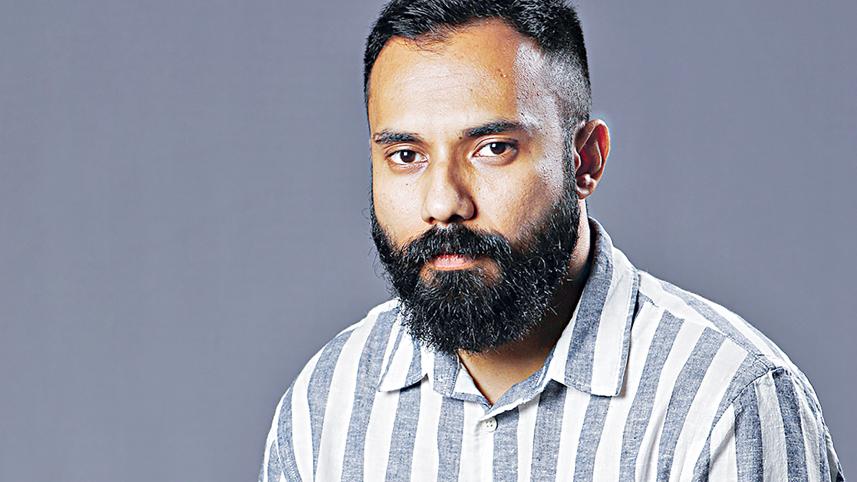“If I don’t raise my voice, I can’t call myself an artiste”

Talented television director Shafayet Mansoor Rana predominantly reflects on contemporary issues through social satire and dark humour in his stories. Widely appreciated last year was his Eid tele-fiction Amader Shomajbiggyan, a story about the voices of the masses. This year, his Valentine's Day release, Poripurok, based on a true story, also stood out.
Since directors have mostly been confined to their homes due to the coronavirus outbreak, they have ample time to come up with innovations in storytelling. Rana shared that he wants to work on dark humour and political satire, if he makes anything based on the pandemic.
Television channels and production houses are highly competitive in the country. Every year, more than a thousand tele-fictions are produced, targeting festivals such as Eid. "When art is considered just as a tool for business, the quality of stories is compromised," shares Rana. "A forty-minute tele-fiction is shot in just a few hours. If such is the case, can we truly expect the product to be worthwhile? Good productions need enough time and consistency." According to Rana, the mismanagement in the industry has resulted in the lack of grooming institutions for both directors and actors. The television arena also lacks proper platforms for constructive criticism.
Owing to the pandemic, this year, channels are likely to telecast leftover productions, that were previously shot. "I am hoping that these projects will be an eye opener to the policy makers and they can find the loopholes," asserts Rana.
According to Rana, the television industry seems to be dependent on trending topics and audiences' preferences. There are hardly any risk takers who will invest in challenging ideas. "This has been a tradition followed by our television channels," states Rana. "You will see that most television channels are almost doppelgangers of one another, with similar content. If we can't give our audience anything new, we certainly can't blame them. Satyajit Ray always tried to convey messages through his films. I don't think he ever thought about how the audience will accept them, which is why his films are considered to be some of the best works in cinema."
At the same time, Rana suggested that artistes should be conscious about taking up projects, noting that unprofessionalism affects the whole process as well.
"Every profession has certain defining features. However, the arts are still not considered as 'serious' fields," he explains. "We need to raise our voices against unprofessionalism. If I don't raise my voice, I can't call myself an artiste."
Among the thousands of tele-fictions that are produced every year, the critics and viewers appreciate only a handful. Despite that, the process of producing tele-fictions has remained the same for years. "Prior to taking up a project, I arrange rehearsals and schedule meetings with the artistes. I spend a lot of time on a single project," asserts Rana. "The quality of a project will fall if my concentration is divided."




 For all latest news, follow The Daily Star's Google News channel.
For all latest news, follow The Daily Star's Google News channel.
Comments